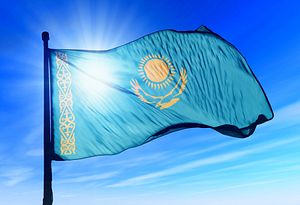Weekend Central Asia reading:
Kazakhstani Narratives: Aktobe continues to dominate discussions about Kazakhstan–and for good reason. The June 5 attacks in the northwestern city of Aktobe were a shocking flash of violence, a rare sight in the region. As the weeks go on, the battle of narratives–how to fit what happened into the larger context–intensifies, with the government settling on one in particular. This week, Astana claimed to have dismantled 14 radical groups since 2015, an oddly timed announcement that appears, on the outside, to be an effort to make the authorities look competent in combating terrorism.
The Kazakh government firmly contends that the attacks were the product of international terrorism, with top law enforcement officials saying the attackers “heard an appeal from a so-called imam [in Syria] who told them to carry out a holy jihad and suggested that they act right now.” Kazakh Foreign Minister Erlan Idrissov made that case in an op-ed on The Diplomat, writing “Indeed, there is evidence that instructions for the attack came from outside Kazakhstan.” In a letter to the Financial Times, Idrissov wrote, “While the attackers were local, it is now very clear that they were motivated by hate-filled extremism from beyond our borders.”
Another letter to the FT, following a piece arguing that Kazakhstan needs to address the “real grievances” in the country, underscores another narrative that merits consideration: that the Kazakhstani public doesn’t trust the government, “With a weak rule of law, merged political and business elites, and rising inequality in opportunities and wealth, the current regime has largely discredited itself in the eyes of small and medium-sized businesses, and of the public at large.” The focus by the government, however, on primarily external causes has policy implications that may see domestic factors overlooked and therefore left to fester. New measures being considered by the state are directed at migration control, surveillance, and special attention to military towns.
Kyrgyzstan’s Mine: The neverending Kumtor saga continued this month with the leak of a statement written by the former chief executive of Centerra Gold (from 1992 to 2008), Len Homeniuk, in which he said former Kyrgyz President Askar Akayev and other managers at Kyrgyzaltyn, the state-owned mining company, made requests “several times per year … for all sorts of financial contributions for various purposes, including for political elections.” Writing for Nikkei Asian Review, Ryskeldi Satke explains how the statement fits into the ongoing back and forth between the Canadian mining company and the powers-that-be in Bishkek over ownership and control of the mine, responsibility for environmental damage, and corruption.
Integrating Europe and Eurasia: The European Council on Foreign Relations released a collection of policy papers earlier this month which “sets out how Europe can turn Eurasian integration to its advantage.” The overarching argument is that if Europe continues to treat Russian and Chinese economic projects in Eurasia as “unwelcome competition,” Europe may simply push Russia and China closer together. It’s in the interest, therefore, of both Europe and Eurasian countries for concerted European engagement. The collection of papers tackles Eurasian integration and the EU, as well as perspectives from a handful of countries: Kazakhstan, Azerbaijan, Greece, Serbia, Turkey, and Ukraine. (I have not had a chance to read all the parts myself, but it’s a good weekend project for the enterprising Eurasianist!) On a related note, Russia apparently is “launching negotiations with China & Europe on Comprehensive Eurasian Economic Union. Response to TPP and TTIP,” according to a tweet from the former Prime Minister of Australia and present President of the Asia Society Policy Institute, Kevin Rudd.
Changing Times (Literally) in the Pamirs: An ecological calendar is a system of telling time–to start planting, to harvest, and so on–based on environmental clues. As ecological calendars break down–thanks to climate change and increased climate variability–the farmers of the Pamirs have had to adjust how they tell time. A recent National Geographic report highlights the Ecological Calendars and Climate Adaptation in the Pamirs (ECCAP) project. “Seasonal indicators are becoming unreliable across the globe, and long-standing traditional knowledge is at risk,” the report notes.

































